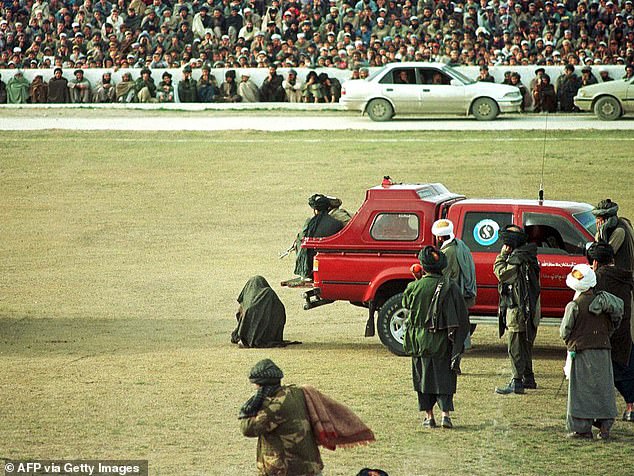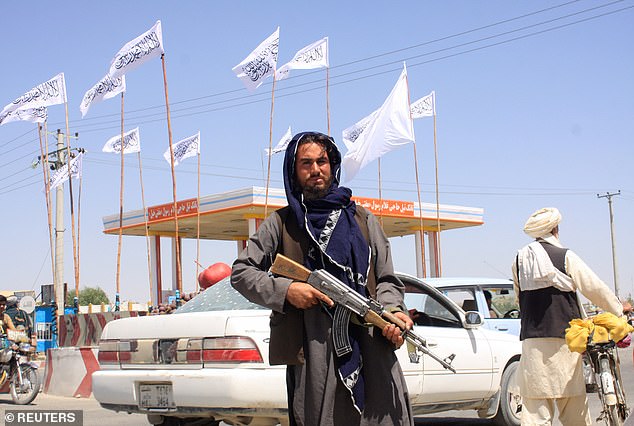- The Taliban continue to execute criminals and dissidents for various crimes
<!–
<!–
<!– <!–
<!–
<!–
<!–
Taliban authorities today publicly executed two men convicted of murder by machine-gunning them in the back in front of a crowd of spectators.
Both men were executed by multiple shots in the back in the city of Ghazni after Supreme Court official Atiqullah Darwish read aloud a death sentence signed by Taliban supreme leader Hibatullah Akhundzada.
“These two people were convicted of the crime of murder… after two years of trial in the country’s courts, the order has been signed,” Darwish said.
Thousands of men gathered at the stadium to watch the execution.
The families of the victims of the condemned were present and were asked if they wanted to grant the condemned a last-minute pardon, but they refused.

Illustrative image showing a suspected murderer executed before a crowd in Kabul in 1998.


A Taliban fighter watches in the city of Ghazni, Afghanistan, August 14, 2021.
The Taliban administration in Kabul has not been officially recognized by any other government since it took power in 2021 and imposed an austere interpretation of Islam.
Akhundzada ordered judges in 2022 to fully implement all aspects of Islamic law, including “eye for an eye” punishments known as “qisas.”
Islamic law, or sharia, acts as a code of life for Muslims around the world and offers guidance on issues such as modesty, finances and crime.
However, interpretations vary depending on local customs, culture, and religious schools of thought.
Taliban scholars in Afghanistan have employed one of the most extreme interpretations of the code, including capital and corporal punishment rarely used by most modern Muslim states.
Hundreds of millions of dollars were spent building a new judicial system under the last foreign-backed government, a mix of Islamic and secular laws with qualified prosecutors, defense lawyers and judges.
However, many Afghans complained of corruption, bribery and slow delivery of justice.
Public executions were common during the Taliban’s first government, from 1996 to 2001.
Thursday’s executions are believed to be the third and fourth death sentences imposed since Taliban authorities returned to power.
The first two had also been convicted of murder.
However, there have been periodic public floggings for other crimes, including theft, adultery, and alcohol consumption.
The previous execution took place in June 2023, when a convicted murderer was shot dead on the grounds of a mosque in Laghman province in front of about 2,000 people.
In response, many governments, international organizations, and aid agencies cut or sharply reduced their funding for Afghanistan, dealing a serious blow to an already struggling economy.
The Taliban government has also excluded girls and women from secondary schools and universities, banned them from parks, fairs and gyms, and ordered them to cover up in public.

